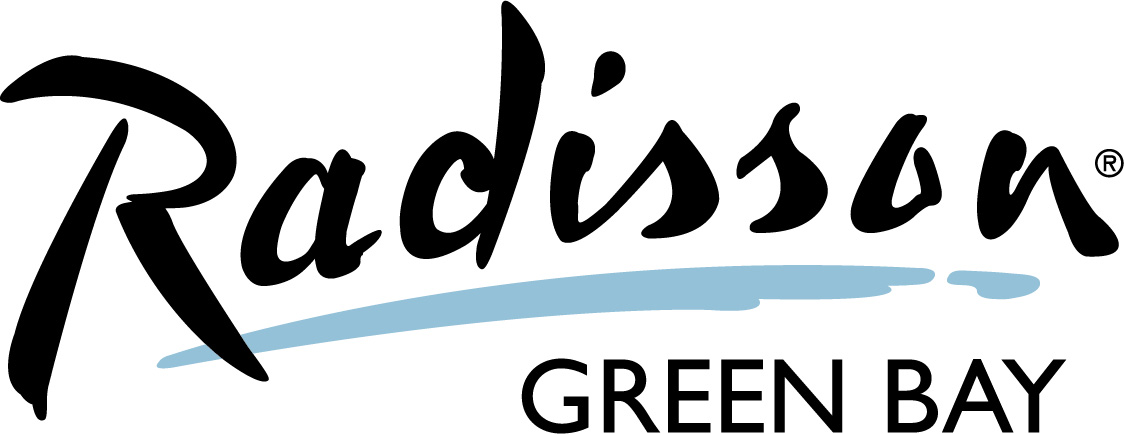Additional Information
Confidentiality
The Oneida Comprehensive Health Division assures that all patient/client rights to privacy are enforced and protected by all of its employees according to the provisions of the Privacy Act of 1974 and any other state and federal laws regarding patient rights to Privacy including the Health Information Portability and Accountability Act (HIPAA) of 1996.
The use of the Electronic Medical Record and improved access to health care information will enhance the coordination of care and positively impact your health care outcomes. Each time your health information is accessed, that information is stored electronically and will make your protected health information more secure.
Forms
PRC Services Packet and Application – Fillable Form
PRC Services Packet and Application – NonFillable
Definitions
| ACA | Affordable Care Act |
| AJRCCC | Anna John Resident Centered Care Community (formerly the AJNH) |
| Alternate Resources | A financial source, other than contract health, that can assist in payment of the bill. Some examples are: Medicare, Medical Assistance, Wisconsin Well Women’s Program, Diability, Kinship Care, Express Enrollment for Pregnant women and children |
| BH | Behavioral Health |
| CHN | Community Health Nurse |
| CHR | Community Health Representative |
| CHS | Community Health Service |
| CLIA | Clinical Laboratory Improvement Amendments |
| DHHS | Department of Health and Human Service |
| EHN | Employee Health Nursing |
| EMR | Electronic Medical Record |
| ENT | Ears, nose and throat |
| HIPAA | Health Information Portability and Accountability Act |
| IHS | Indian Health Service |
| IM | Internal Medicine |
| LPN | Licensed Practical Nurse |
| MD | Medical Doctor |
| OB/GYN | Obstetrics/Gynecology |
| OCHC | Oneida Community Health Center |
| OCHD | Oneida Comprehensive Health Division |
| PAR | Patient Account Representative |
| Peds | Pediatric Medicine |
| PHI | Protected Health Information |
| Podiatrist DPM | Specializing in conditions of the feet |
| PRC | Purchased/Referred Care |
| RN | Registered Nurse |
| WIC | Women, Infants and Children |
Eligibility
The Oneida Comprehensive Health Division provides a number of services to the Oneida Community through a combination of a compact with the Federal government through the Indian Health Service, Tribal Contribution funds and third party revenues generated by private insurance, Medicaid and Medicare.
Health Services are divided into two categories of care, Direct Care and Purchased/Referred care services.
Direct Care
Service provided directly within the Oneida health care facilities. Persons to whom direct care services may be provided are:
- Members and/or descendants of a Federally recognized tribe or Alaska Native Group with proof of enrollment and/or descendancy.
- Non-Indian woman, that is not married to an enrolled member, pregnant with an eligible Indian’s child for the duration of her pregnancy through post-partum (usually 6 weeks)
- Non-Indian spouse married to an enrolled member of a Federally recognized tribe or Alaska Native Group.
- Non-Indian Children adopted by an enrolled member of a Federally recognized tribe or Alaska Native Group.
- Indian Children adopted by a Non-Indian family.
- Non-Indian Employees of the Oneida Tribe of Indians of WI.
Purchased/Referred Care (PRC)
Purchased/Referred care services is a financial resource to assist in payment for services that cannot be directly provided within the Oneida health care facilities. Federal regulations require that PRC funds are to be used only after all other alternative resources have paid. Eligibility will be determined by a Purchased/Referred Care Representative based upon federal regulations.
Visit our Purchased/Referred Care webpage for more information.
Patient Rights & Responsibilities
Patient Rights
The Oneida Comprehensive Health Division assures that its patients are treated in a manner that recognizes their basic human rights by assuring the following:
- Patients are treated with respect, consideration, and dignity. Patient’s rights and responsibilities covered by the Indian Freedom of Religion Act will be strictly observed.
- Patients are assured confidential treatment of their disclosures and records and, except when required by law, are afforded the opportunity to approve or refuse their release.
- Patients are provided, to the degree known, complete information concerning their diagnosis, treatment, and prognosis.
- When it is medically inadvisable to give such information to a patient, such information is made available to an individual designated by the patient or to a legally authorized individual in conformity with the Privacy Act of 1974 and other controlling laws.
- Patients are given the opportunity to participate in decisions involving their health care, unless constrained for medical reasons.
- Patients are informed of their rights to change providers if other qualified providers are available.
Information is available to patients and staff concerning:
- Patient Rights, including those specified above:
- Patient conduct, responsibilities and participation.
- Services available through the Comprehensive Health Division and eligibility for such services.
- Provisions for after-hours and emergency care.
- Fees for services including what services are provided for through the Indian Health Service and eligibility criteria.
- Payment policies.
- Advance directives as required by State and Federal law and regulations.
- The credentials of all health care professionals working within the Comprehensive Health Division.
- The process for filing under the Federal Tort Claims Act.
- How to voice grievances regarding the treatment of care.
- Methods for providing feedback, including complaints.
Patient Responsibilities
Prior to receiving care, patients are informed of their responsibilities. We expect that our patients will:
- Be responsible to provide for their own needs to the extent of their ability by providing complete and accurate information about his/her health, any medications taken, including over-the-counter products and dietary supplements, and any allergies or sensitivities.
- Encourage their families to be responsible to provide for the needs of their members to the extent of their abilities.
- Follow the treatment plan prescribed by his/her provider and participate in his/her care to the best of their abilities.
- Cooperate with efforts to maintain confidential records.
- Ask questions about diagnosis, treatments, and prognosis to assure adequate understanding of your condition.
- Use established procedures for obtaining after-hours care.
- Be respectful of others needs by keeping appointments and/or notifying the Health Center, or other departments within the health division, in advance, when unable to keep an appointment.
- Behave respectfully toward all the health care professionals and staff as well as other patients.
- Provide complete and accurate information for registration and insurance upon request and accept personal financial responsibility for any charges not covered by insurance or by Indian Health Services.
- Respect Oneida Comprehensive Health Division property.
- Provide feedback to the Oneida Comprehensive Health Division for continuous quality improvement.
- Avoid the use of Cell Phones beyond the waiting areas/lobby areas in accordance with HIPAA regulations.
Vision & History
Vision
A progressive sustainable health system that promotes tsi?niyukwalihot^ (Our Ways)
Mission
We provide the highest quality, holistic health care to improve the health and wellness of OUR Oneida Community.
Values
Responsive Leadership, Culturally Sensitive, Respect, Continuous Improvement, Communication, Safety, and Trust is the foundation.
Our History
Many years ago, a handful of Oneida women had a vision and a dream. Thus was conceived and born our present day Oneida Community Health Center.
Provision of health care services began in a small suite of rooms at the Norbert Hill Center. A Director, a Secretary, four (4) Community Health Representatives, a RN, and a LPN offered limited services. As health services grew, a move was made to the Civic Center where a small laboratory was added. The medical staff consisted of volunteer doctors, a nursing staff, the first alcohol and other drug abuse counselors and a social worker. Dental services were provided by volunteer dentists from Milwaukee on weekends in a small office at the Tribal Building on Fish Creek Rd. and Hwy H.
While Indian Health Service and Indian Health Service Commission Corps providers offered limited holistic health services, due to limited comprehensive services as well as limited space and equipment, many services were contracted out.
Increased Health Care needs continued to push growth and expansion. In May 1978, the Oneida Community Health Center opened its doors in a new building at the corner of Highways E & EE. For approximately 25 years this facility was the hub of health care services for Native people in and around the Oneida area. The facility and operations continued to grow until the site could no longer be expanded. The planning then began for the creation of a “new” health center to provide state of the art health services to the Oneida Community.
On November 4, 2002 a state-of-the-art ambulatory health clinic opened at 525 Airport Drive. The demand for health care services increased as our community continued to grow. In 2006, the Oneida Comprehensive Health Division was formed which combined the programs of the Oneida Community Health Center, Oneida Behavioral Health and the Anna John Nursing Home (AJNH). In 2008, the Oneida Employee Health Nursing Department joined the Division in an effort to consolidate all health care services into one area within the Oneida Nation. In June of 2013 the residents of the AJNH moved from their facility at the corner of E & EE into a new facility at 2901 S. Overland Road. The facility was designed to be more than a nursing home so therefore the name changed to the Anna John Resident Centered Care Community or AJRCCC.
All services are continually monitored and evaluated to permit the organization to meet the demands of our community’s growth. New services, technology, equipment, and customer demand are continually being considered to support advanced and continuous quality health service for the Oneida Community.
Cultural Awareness
Oneida Comprehensive Health Division implemented a Cultural Awareness policy on November 20, 2015 to:
-
- Ensure Comprehensive Health Division employees are culturally sensitive and competent in working with individuals from the Oneida Nation and surrounding Tribes.
- Establish procedures to enhance the value of services being provided and improve patient satisfaction through meeting the needs of individuals from the Oneida Nation and surrounding Tribes.
- Ensure the Health education and disease prevention programs are comprehensive and will consider the medical, psychological, social, and cultural needs of the population to be in compliance with accreditation standards of the organization.
Employees can use the Learning Schedule and Approved Activities lists to obtain their culture education hours each month.
For more information about Oneida Culture, events and activities, see the Cultural Heritage webpage.







